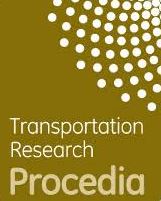Research Papers/Articles
Embedding Imaginaries- Electric Vehicles in Sweden’s Fossil Fuel Free Future
2021
Author(s): Mutter A
The purpose of this study is to explore the interaction between visions of the future and policy through the analysis of one Swedish policy document, a 2013 government investigation Fossil Fuel Freedom on the Road, and its subsequent policy process.
The Value of Consumer Acceptance of Controlled Electric Vehicle Charging in a Decarbonizing Grid: The Case of California
2021
Author(s): Tarroja B, Hittinger E
Concerns about the environmental and energy security consequences of fossil-fuel reliance have prompted regional energy systems to expand their use of sustainable and zero-carbon energy sources. This is reflected in the growing use of plug-in electric vehicles (PEVs) in transportation.
Off-Grid Solar Charging of Electric Vehicles at Long-Term Parking Locations
2021
Author(s): Ghotge R, Wijk Ad van, Lukszo Z
Larger EV fleets lead to an increase in the demand for both electricity and EV charging infrastructure. This work analyses the effectiveness of an off-grid solar photovoltaic system for the charging of electric vehicles (EVs) in a long-term parking lot.

Accessibility Analysis for Urban Freight Transport With Electric Vehicles
2021
Author(s): Carrese F, Colombaroni C, Fusco G
The aim of this paper is to depict extremely complex interactions between components of freight distribution systems using an accessibility analysis based on an aggregate approach, rather than cumbersome simulations of all possible tours, customers, and deliveries.
Modelling Electric Vehicle Charging Network Capacity and Performance During Short-Notice Evacuations
2021
Author(s): MacDonald CD, Kattan L, Layzell D
In this paper, a generalized framework based on a G/G/c/N queueing model (general arrival process, general service process, c charging stations, and N EVs) was developed to estimate the number of vehicles that can be charged in the pre-departure evacuation stage and thus assess the pre-departure impacts.
Fuel Cell Electric Vehicles and Hydrogen Balancing 100 Percent Renewable and Integrated National Transportation and Energy Systems
2021
Author(s): Oldenbroek V, Wijtzes S, Blok K, van Wijka AJM
The question addressed in this paper is how parked and grid-connected hydrogen-fueled Fuel Cell Electric Vehicles might balance 100 per cent renewable electricity, heating, cooling and transport systems at the national level in Denmark, Germany, Great Britain, France and Spain?
Freight Distribution With Electric Vehicles: A Case Study in Sicily
2021
Author(s): Napoli G, Polimeni A, Micari S, Dispenza G, Antonucci V, Andaloro L
This paper explores the integration of electric vehicles in logistics operations executed through light commercial vehicles, taking into consideration, during the design phase of a new concept delivery van, the technical connections with the production systems and its possible applications also in areas other than urban.
Battery Electric Vehicle Adoption in Regions Without Strong Policies
2021
Author(s): Brückmann G, Willibald F, Blanco V
This paper presents individual consumer characteristics and home-location based spatial characteristics of current BEV and internal combustion engine vehicle holders, in a region free from strong EV policies.
Taking Into Account Greenhouse Gas Emissions of Electric Vehicles for Transportation De-Carbonization
2021
Author(s): Gan Y, Wang M, Lu Z, Kelly J
This study quantifies greenhouse gas emission increases due to these two effects in the three markets. The authors show that plug-in electric vehicles sold in 2012–2025 in the three markets will result in greenhouse gas emission increases of more than 1 billion tonnes of CO2 equivalent through 2050 relative to the case without the two effects.
Understanding and Identifying Barriers to Electric Vehicle Adoption Through Thematic Analysis
2021
Author(s): Krishna G
The study focuses on identifying and understanding the factors involved in their purchase with a wider range of expression using thematic analysis unlike traditional survey techniques.



